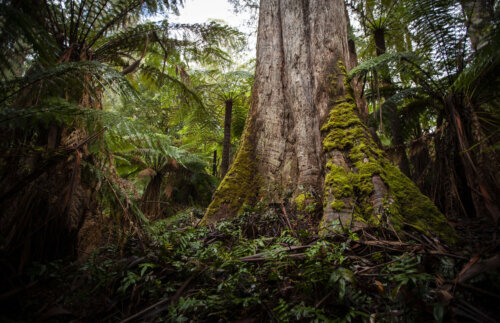Every day, our elected representatives and public servants are working on major projects and making big decisions which affect everyone’s lives.
When decision makers conduct inquiries or propose new rules, projects or policies that could impact on people and places, the community is often invited to have their say.
This is a precious part of our democracy. It gives everyone the chance to engage in the policies which affect our communities and environment.

What is a submission?
Government departments, government authorities, committees and inquiries often invite citizens to share their opinions to inform their decision making or policies.
When making a decision, the decision maker will read all submissions from the public and interested groups.
If these submissions are relevant to the project or the “terms of reference” in the case of an inquiry, the submission will be “accepted”. Sometimes they are published online.
How to write an impactful submission
The best submissions are unique. Decision makers are much more likely to read and be influenced by a submission written with genuine care and a desire to protect the people and places we all love.
Before you start getting words down, think about what key issues matter the most to you and why.
If you can, include evidence or personal experiences to back up your statements and make clear recommendations which the decision maker can act on.
Read the information available to you, including documents on the relevant website inviting submissions to be made, or the terms of reference in the case of an inquiry. Think about how you want to address some or all of them (you do not need to address each one).
Rather than calling on a minister to ‘do the right thing’, it is more effective to set out what actually needs to be done to achieve the outcome you want.
Start your submission by introducing yourself – who are you and why have you taken the time to have your voice heard?
Next, set out the key issues, using personal experience and clear actions. If you can, identify what is driving the key issues you’ve raised.
- Include evidence and data to support your statement. Helpful facts and reports can often be found on EJA’s website.
Link the issue back to the reason for the submission – whether it’s an inquiry, a project assessment, or legislative review, let the decision maker know how they can address the issues you’ve raised.
- Make sure you address some or all of the terms of reference, so your arguments are relevant to what the decision makers are focusing on.
Your submission doesn’t have to be long, but if it is, try breaking it up with subheadings and paragraph numbers.
Be respectful and clear. It’s important to make a persuasive statement but a submission that is rude or aggressive will be dismissed.
Only include information you are comfortable seeing published on the internet, as your submission might be published with your name on the inquiry’s website.
- If you do not want your submission published on the internet, write “confidential” on the front of your submission and briefly explain why.
- If your submission is confidential or contains sensitive information, contact the decision maker before you submit.
Be careful not to defame someone. Most organisations cannot sue for defamation, but individuals can.
- If you write something critical about another person, such as accusing them of lying or corrupt behaviour, this may be defamatory and that person could take legal action against you. These matters should be made to the relevant anti-corruption body or Ombudsman instead.
You’ve finished writing, now it’s time to follow the steps to "submit"!
Most submissions can be uploaded and submitted online.
We’d also love for you to share your submission with us, or if you have any questions and need more support get in touch at [email protected]
Take action

It’s time to celebrate and protect Victoria’s breathtaking forests
After decades of logging and destruction, we finally have a chance to give Victoria’s breathtaking forests the long-term protection and celebration they deserve. The end of native forest logging was a huge win for Victoria’s forests and the wildlife and people that call them home. But right now, this win is only as good as
Read More

Help shape the future of Victoria’s Central Highlands
The Victorian government wants to hear from people across Victoria about what makes the Central Highlands so special. Have your say on why these breathtaking forests matter to you, and how you want to see them cared for into the future.
Read More

Call on Prime Minister Albanese to deliver new nature laws in full
The places, plants and animals we love cannot wait any longer. We need new nature laws now. The Albanese government has just announced it will delay nature law reforms to address Australia’s extinction crisis. Australia is a global deforestation hotspot with a devastating rate of wildlife extinction, and rampant, lawless land clearing. The Albanese government
Read More

Email your submission on Australia’s draft new environment laws
Until 30 March, we have a chance to speak up for our environment and secure laws that actually protect nature.
Read More

Call for environment laws that actually protect our environment
It’s clear our current environment laws are weak, broken and full of holes – but right now, we have real opportunity to fix them.
Read More

Call for stronger protections against coal ash pollution in the Latrobe Valley – Submission guide
After successful community action won higher standards and better transparency from AGL, the EPA is seeking feedback from the community on AGL’s revised plans to expand its coal ash dumps in the Latrobe Valley. You can have you say until 11.59pm Friday, 9 February 2024.
Read More
